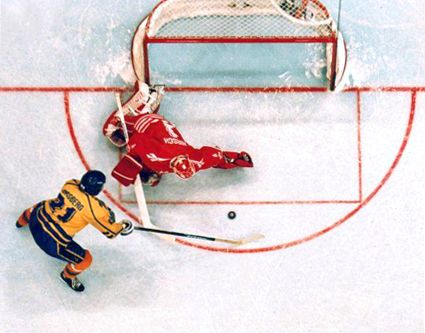
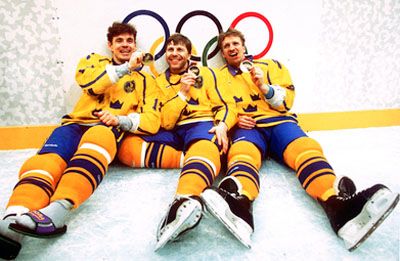
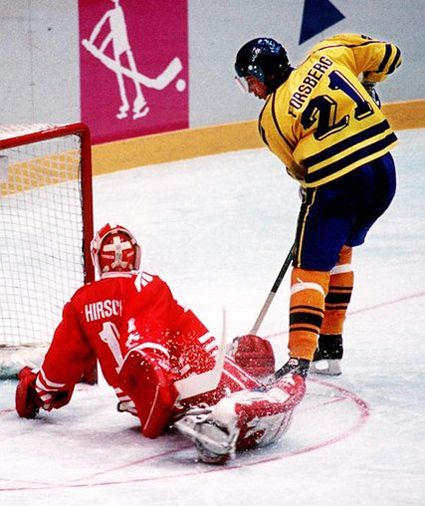
The Hockey Jersey of the Day Blog



We started out playing some solid hockey that year and just kept getting stronger as the year went on. There was one game toward the latter part of the season, however, that really had an impact on the psyche of this team. It was against Boston on February 26, on the road at the Garden. We had never beaten Boston in that arena, ever, in the history of our franchise. We were something like 0-27-7 over the past 14 seasons. They had absolutely owned us, it was ridiculous. The bad blood had started several years earlier when one of their tough guys, John Wensink, had skated over to our bench during a game one time and challenged every guy on the team to come out and fight him. Well, nobody budged.Anyway, I was tired of those sonsofbitches intimidating us, so I decided that the "Curse of the Bruins" was going to come to an end right then and there. By that point I knew that we were going to wind up facing them in the first round of the playoffs that year and I really wanted to make a statement. I wanted to instill a new attitude of toughness into our guys and really encourage them not to take any sh-- from those a-- holes. That is so important in hockey, not to be intimidated or disrespected by your opponents. I remember just before the game a reporter asked our enforcer, Jack Carlson about the "Wensink incident." He asked him what would happen if something like that happened again. Jack just smiled and said "I would jump over the boards in a hurry and go after the guy because I would hate to have my coach beat me to him!"As it turned out, we would wind up losing the game, 5-1, but I didn't care about the score at all. I wanted to send a message that we weren't going to be pushed around anymore. So, I told our guys before that game that we had to make a stand right there. I told them that we were never going to beat them until we stood up for ourselves. I even held up a Boston newspaper that had an article in it about how the Bruins had dominated us and that we were basically a bunch of pussies. I told them that they were questioning our manhood. I really tried to get them riled up and mad as hell. My instructions to them in the locker room just prior to the opening face-off were simple. I told them that not the second time, or the third time or even the fourth time, but on the first time that any Bruin tried to intimidate one of them, that they were to drop the gloves. I told them that we were going to war that night and that we were going to keep going to war until the game was over. Period.We had a ton of tough guys on tour team. In addition to Jack Carlson, who was probably the toughest heavyweight in all of pro hockey at the time, we had Brad Maxwell, Dave Richter, Al MacAdam and Gordie Roberts. So, I felt pretty good about matching up with the "Big-Bad Bruins." It wasn't those guys I was talking to about dropping the gloves though, it was everybody else. I wanted everybody to get into the action and really let their emotions out. I wanted them to experience just how good it felt to stand up for yourself and stop being bullied.Well, sure as sh--, just seven seconds into the game our star player, Bobby Smith, who was anything but a fighter, dropped the gloves. Steve Kasper, one of their top agitators, had cracked him right under the chin with his stick during the opening face-off and that was just what the doctor ordered. As soon as Bobby dropped 'em, everybody else did too and we were off to the races. It was beautiful. That was how it was all night too. There was one fracas after another. I was never so proud to see at one point during the game, there were five fights going on and we were winning them all! I remember seeing Al MacAdam just beat the crap out of one of their toughest guys, Stan Johnathan. It was a blood bath. I mean there were over 340 penalty minutes in the first period alone, not to mention a total of 12 ejections. By the end of the game, there were 42 penalties, including seven game misconducts, and an NHL record 406 total penalty minutes. It just went on and on, it was really something. We only had about five guys apiece on the bench when it was over because so many guys had been thrown out of the game.In the end we wound up losing the game, but I could not have cared less. I was so proud of our guys, I could barely contain myself. Then after the game I got into a shouting match on the bench with their coach, Gerry Cheevers. The next thing I knew my players were holding me back from trying to go after him. Hell, I wanted a piece of him. Sure, why not? I took a few swings at him from sort of an odd angle where I was punching up towards him as he was leaning over the glass.Anyway, down in the locker room after the game we were all pretty fired up. I was a scene straight out of a war movie, like we had all just returned from battle. I was great. The reporters couldn't wait to talk to me and get some quotes about what the hell I was up to. So, I am out talking to them and one of the reporters reads me a quote from Cheevers, who basically said that I was behind it all and that I had no character. I just smiled and said to the reporter and said, "OK, I have a message that you can take back to Gerry. Tell him to meet me between the dressing rooms the next time we play each other and we'll settle this like men. We'll see whose got character then." And then I added "Oh, and by the way, tell him to bring a basket to carry his f---ing head home in!"I tell you what, we barely made it out of the Garden alive. Their fans came down and started rocking our bus, trying to bust the door down to have at us. It was scary, it really was. I thought we might have a riot on our hands, but luckily the cops showed up and escorted us out of there. It was a great flight home though. I remember looking at everybody with their fresh stitches, it was marvelous. We were victorious in my eyes because that just set the stage for our eventual meeting with them in the playoffs. The bad part of it all was that the league president called me into his office shortly thereafter and I caught hell from him. He asked me if I had incited my guys to play that way that night and I said "absolutely." I told him that we needed to make a stand and that I wasn't going to apologize for that. I got fined for it, but [North Stars general manager] Louie Nanne gladly paid it for me. He knew what I was up to and was behind me 100%.Back on the ice, we finished up the 1980-81 regular season and went on to meet Boston in the first round of the playoffs. Now, just before we hit the ice at the Garden, I did something that I had never done before. I put on my eye patch, just like the old pirates used to wear. It is a crazy story of how I decided to put it on too. You see, just before I left for the airport from my house in Hopkins, I got a letter from a fan that somehow caught my attention. I was in a hurry, but for some odd reason I took a second to open it up and read it. I was from a woman in White Bear Lake who said that she was a psychic. She said that she had a vision of me standing behind the bench in the Boston Garden with an eye patch on and that she saw us beating what she called the "Curse of the Garden." Her name was Amy Puckett, as in hockey puck, so I figured it had to be a good omen. Hell, I figured I could use all the good karma I could get at that point, so I ran back into the house and grabbed my eye patch [Sonmor had suffered a career ending eye injury as a player when hit by a slap shot and had a glass eye]. Anyhow, I put that patch on right before we hit the ice and I remember screaming out just like a general leading his troops into battle: "Boys, the curse ends tonight!"We walked out onto the ice and the atmosphere in there was just electric. We had still never on out there up until that point, but thankfully that all ended in Game One when Steve Payne score the game-winner at the 3:34 mark of overtime to give us a thrilling 5-4 victory. The curse had officially been lifted and we were on top of the world. We were expecting another blood bath, but they played us straight up and it ended up to be a hell of a series. We then followed that up with a 9-6 victory in Game Two, behind our backup goalie Donny Beaupre. From there, we came home to Bloomington for Game Three and it was just louder than hell in there. I mean the walls in the locker room were literally vibrating. It was insane. We were really confident in ourselves at that point and we went out there and finished them off by the final score of 6-3 to sweep the series. After the game legendary radio analyst Al Shaver said it was the biggest upset in Stars history. I would whole-heartedly agree, it was huge. More importantly, we had earned Boston's respect.


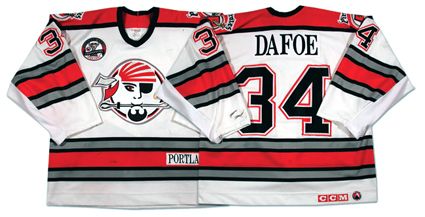
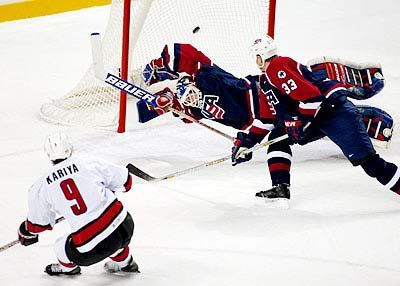
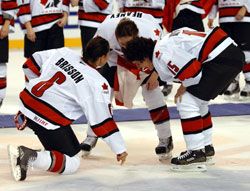
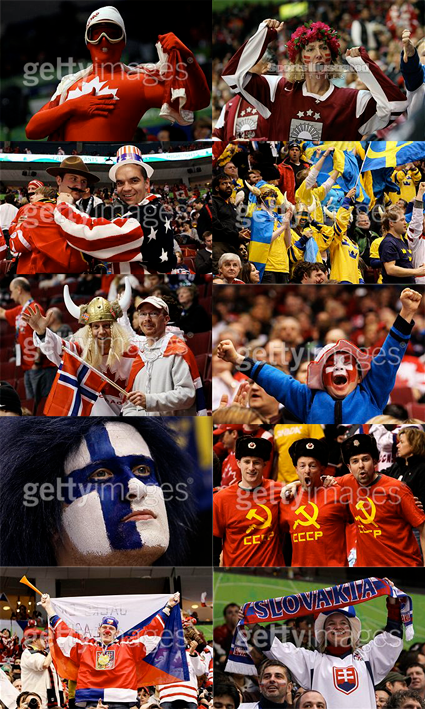
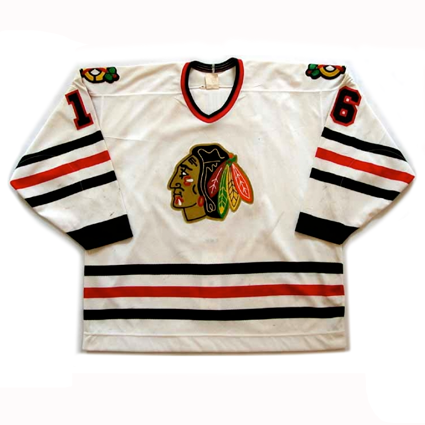
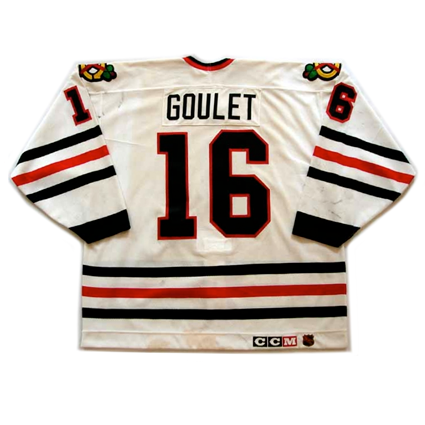
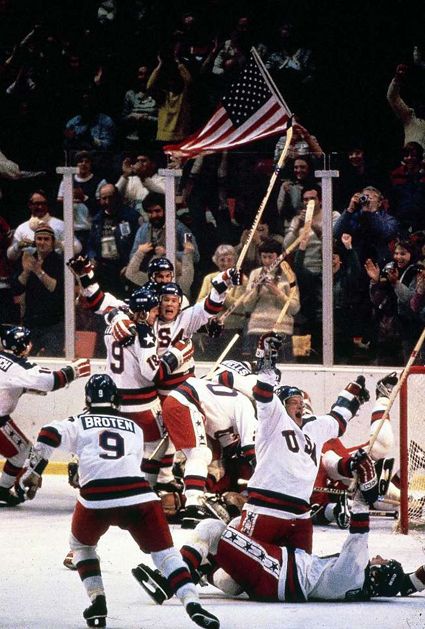
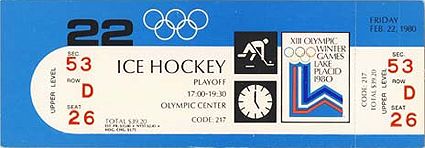
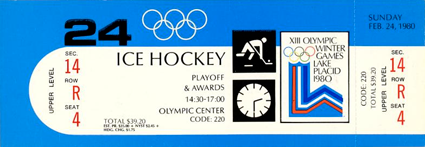

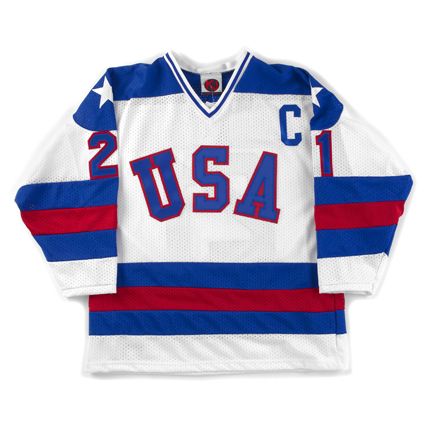
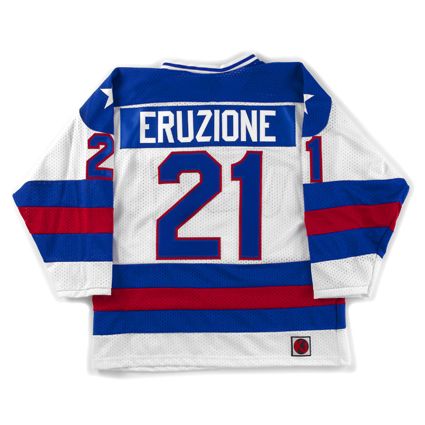

Looking to reach our loyal readers with your hockey related product or service? Of our hundreds of readers each day, 60% are located in the United States and 30% come from Canada. Our audience is your audience and you can target them now with our reasonable ad rates.
We've been linked to by SI.com, ESPN.com, Uni-Watch.com, NBCSports.com and the Yahoo! Sports Puck Daddy blog among others.
Contact us today for more information at: Spyboy1@gmail.com!

There is no limitation to what kind of hockey jersey it can be - replica, authentic or game worn jersey from the NHL, a national team, the minors, juniors, college, high school or even your pond hockey jersey.
To submit your jersey, just send an email to Spyboy1@gmail.com